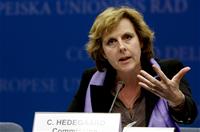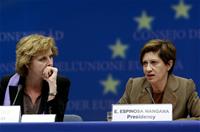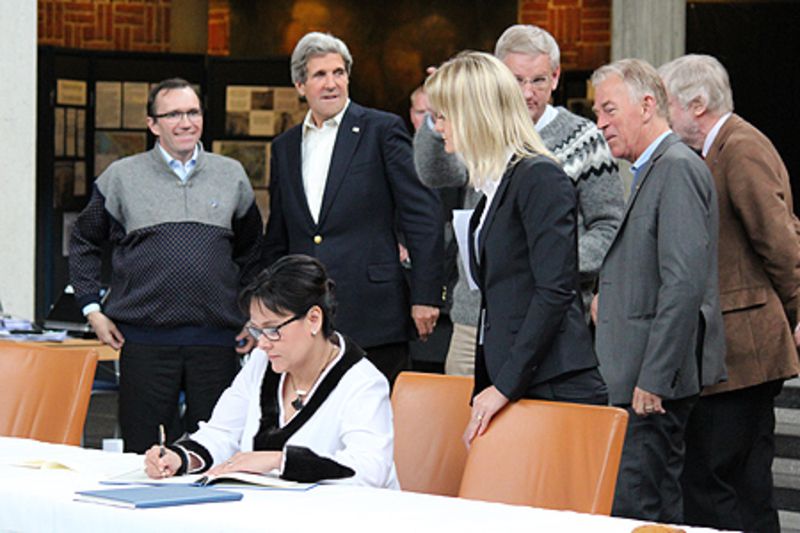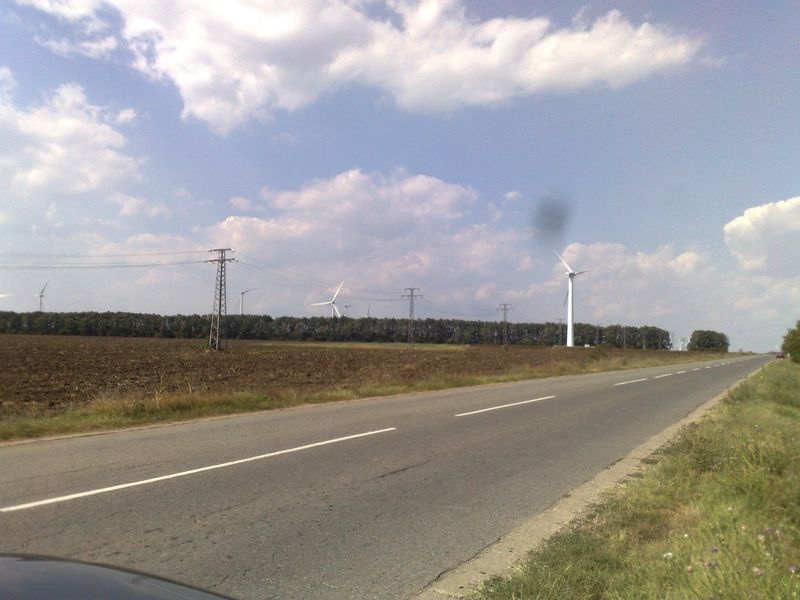30% reduction of emissions must remain as a condition
Adelina Marini, March 17, 2010
 This is what EU environment ministers have agreed upon at their regular meeting in Brussels on Monday. Then, for the first time, they discussed the new strategy of the European Commission for future actions after Copenhagen. Most ministers insisted though, that in order the EU to be able to commit to a 30% reduction of its greenhouse gas emissions by 2020, it should make a comparability assessment with the commitments of third countries, as well as to analyse the impact of a possible 30 per cent reduction.
This is what EU environment ministers have agreed upon at their regular meeting in Brussels on Monday. Then, for the first time, they discussed the new strategy of the European Commission for future actions after Copenhagen. Most ministers insisted though, that in order the EU to be able to commit to a 30% reduction of its greenhouse gas emissions by 2020, it should make a comparability assessment with the commitments of third countries, as well as to analyse the impact of a possible 30 per cent reduction.
This is an analysis the Commission promised last week to prepare for the European Council in June. The Climate Action Commissioner Connie Hedegaard admitted, that the environment ministers requested some conditionality in the international negotiations on a future climate change agreement. The question is not about the EU keeping its leverage for pressure only but also about the creation of mechanisms for investments, which should help the EU create growth without its environment commitments to be harmed.
"The whole thinking which is behind the communication and which is also behind the Commission's 2020 strategy, that is to say that it's not just on climate change - if we do it intelligently, it could also benefit energy security, it could also benefit job and innovation", Ms Connie Hedegaard added. She underlined, however, that the EU is ready to do its utmost to help achieve an agreement in Cancun in the end of the year.
She called for an end of speculations on whether the climate conference in Mexico would be successful, although she admitted that the basic differences, which existed in Copenhagen too, still remain. One of these differences is China's objection to an international monitoring of commitments' implementation. Beijing insisted to oversee its own commitments on its own.
The fact that the negotiating process is still continuing to boil is proved by the increased interest to the environment Council by media from developing countries. For example, a Chinese journalist asked the Climate Action Commissioner whether Europe, as the US did in Copenhagen, would put pressure on China to accept international inspections. To this Connie Hedegaard replied like this:
"It's absolutely crucial that whatever we agree upon that it can be measured, reported and verified. And that's why it's one of the keys to an international binding agreement which, as you know is still the objective of the European Union".
In the meantime, the group of the Greens in the European Parliament again criticised sharply the claims of the EU that it wanted to be a leader in global climate policy, while in the same time it made very weak commitments. On Monday, during the EU environment ministers meeting, the Greens presented a report, made by the independent research organisation CE Delft, which says that EU's current emissions target falls short of its responsibility.
Besides, this target is inconsistent with its stated goal of limiting the increase in  global temperatures to below 2°C and falls behind the emissions pledges of other countries. The paper also shows that higher emissions reduction targets (up to 40% by 2020) are not only possible but would benefit the EU economy. The research, presented by the Greens on March 15th, is very similar to another paper, also made on the Green's request by EcoFys for the Copenhagen summit.
global temperatures to below 2°C and falls behind the emissions pledges of other countries. The paper also shows that higher emissions reduction targets (up to 40% by 2020) are not only possible but would benefit the EU economy. The research, presented by the Greens on March 15th, is very similar to another paper, also made on the Green's request by EcoFys for the Copenhagen summit.
And regarding Monday's decision of the environment ministers a comparability assessment to be made, the Green's research shows that a 20% reduction is definitely not an ambitious target. Australia, New Zealand, Japan, Norway and Switzerland have much more ambitious targets as well as some of the emerging economies.
There was discord among the ministers on another proposal for changes in the regulation for setting CO2 standards for light cars. Many member states, without being specified exactly which ones, asked the implementation of the new standards to be postponed. The new standards require all new cars to emit no more than 135 grams carbon dioxide per kilometer by 2020.
 Connie Hedegaard explained she was not surprised by these objections but stated firmly: "I want to be very clear - the more the EU is delaying such regulations, the more we will have to do in other areas so as to achieve our goals. So this is bargaining, a balance".
Connie Hedegaard explained she was not surprised by these objections but stated firmly: "I want to be very clear - the more the EU is delaying such regulations, the more we will have to do in other areas so as to achieve our goals. So this is bargaining, a balance".
Only five member states have presented officially their positions on the new CO2 standards for light cars. Those are Hungary, Slovenia, Sweden, Latvia and the Netherlands. All five have supported the proposal the standard to be 135 gr CO2/km by 2020.
 | © Government of Sweden
| © Government of Sweden | © КРИБ
| © КРИБ | © euinside
| © euinside